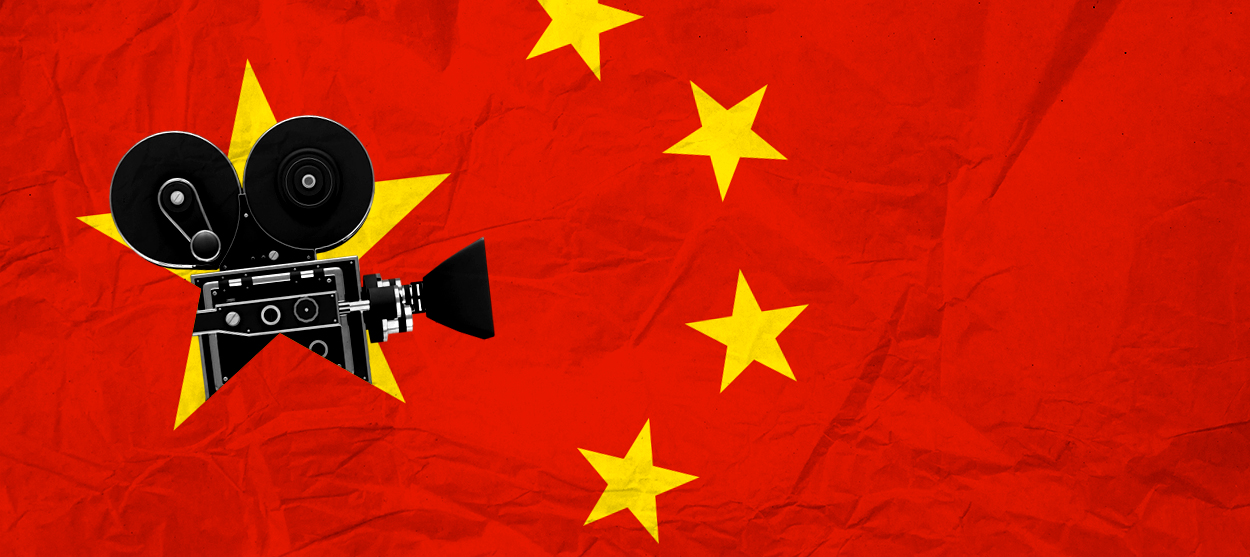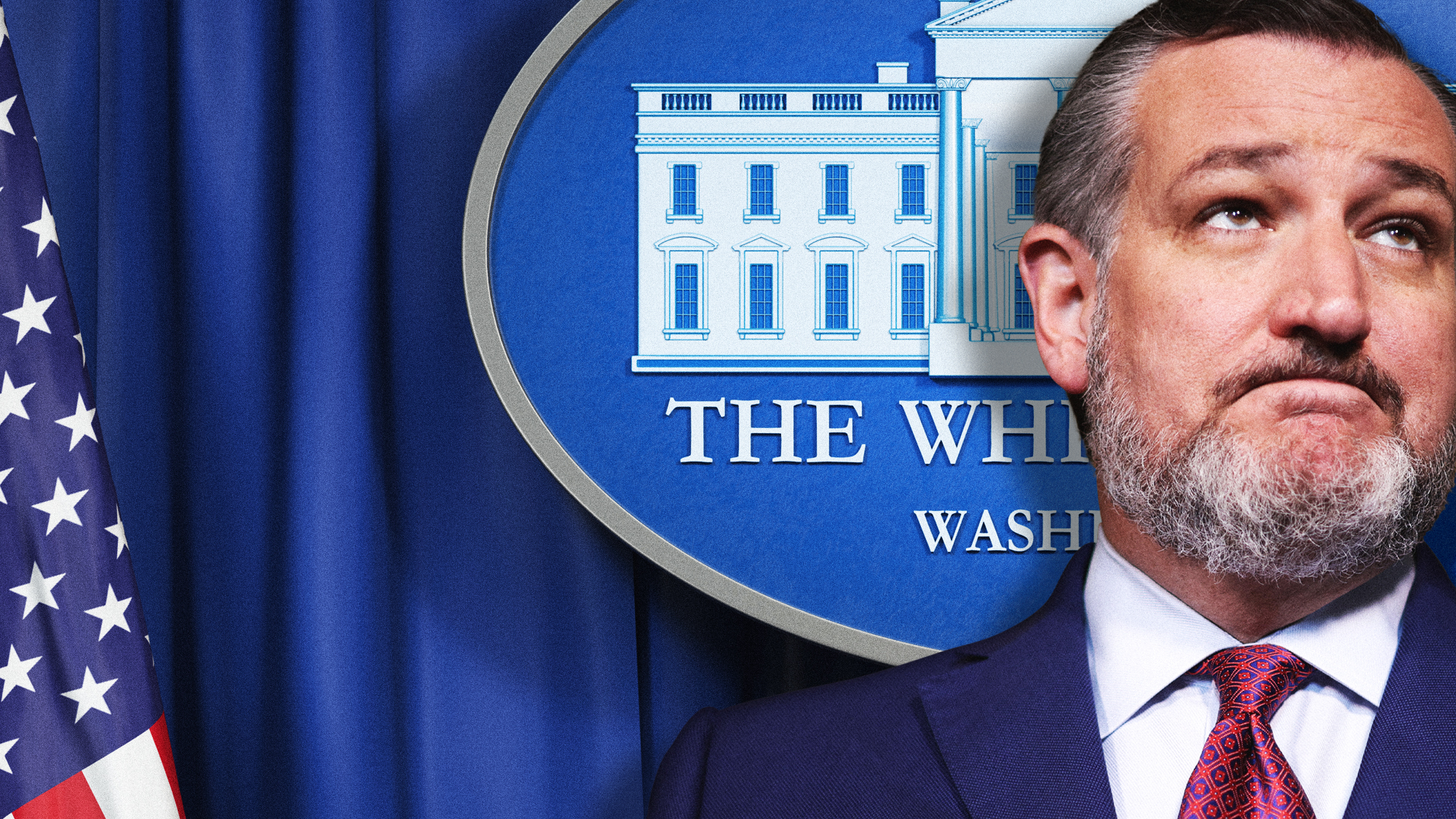Ted Cruz is right about getting Chinese censorship out of Hollywood movies
We might have different reasons, though


A free daily email with the biggest news stories of the day – and the best features from TheWeek.com
You are now subscribed
Your newsletter sign-up was successful
Under normal circumstances, I tend to disagree with Texas Sen. Ted Cruz (R) about basically everything other than the sacrilege of a Princess Bride remake. But with his latest legislative effort, he might just have my support.
Earlier this week, Politico reported that Cruz plans to introduce the SCRIPT Act (or "the Stopping Censorship, Restoring Integrity, Protecting Talkies Act," named in the great Washington tradition of painfully forced backronyms), which would discourage the widespread practice of studios reworking movies to be more palatable to Chinese government censors by blocking Department of Defense cooperation with the production of those films. That would be a great thing — but not necessarily for the same reasons as Cruz says.
First, it must be said that, although I suppose it's possible that Cruz is purely motivated by protecting the artistic integrity of the cinema, the timing of this move is suspect. In the weeks leading up to the SCRIPT Act announcement, Cruz has railed against an alleged "Chinese Communist [Party] cover-up" of coronavirus and promoted unfounded conspiracy theories alleging COVID-19 escaped from a Chinese government lab. He's also made sinophobic comments about "bat soup in the Wuhan province." At the end of last week, Cruz announced legislation intended to stop Chinese outlets from using Canadian or Mexican stations to (in Fox News' words) "spread foreign propaganda across U.S. airwaves." Sticking it to Beijing is a popular move right now, especially for Trump-defending Republicans looking to spread blame for the devastating outbreak. Nevertheless, the case may be that Ted Cruz has landed on a good idea with the wrong motivations.
The Week
Escape your echo chamber. Get the facts behind the news, plus analysis from multiple perspectives.

Sign up for The Week's Free Newsletters
From our morning news briefing to a weekly Good News Newsletter, get the best of The Week delivered directly to your inbox.
From our morning news briefing to a weekly Good News Newsletter, get the best of The Week delivered directly to your inbox.
Importantly, American filmmaking is not exactly the shining example of the freedom of speech that Cruz implies it is. The SCRIPT Act specifically targets movies that are supported by the Defense Department, which, it turns out, there are a lot more of than you'd expect. The Pentagon assisted on more than 800 films and 1,100 TV titles between 1911 and 2017, and on occasion it has exercised its own censorship over how the military is portrayed. When 2003's Hulk was in production, for example, the DoD requested "pretty radical" script alternations, The Independent writes, including "disassociating the military from the gruesome laboratories that created 'a monster.'" With Meet the Parents, "the CIA admitted it had asked that Robert De Niro's character not possess an intimidating array of agency torture manuals," The Independent adds. In fact, the Pentagon needs to be wooed anytime a movie wants U.S. military support, like borrowing a tank or consulting with military experts about logistics. Man of Steel was initially denied assistance from the U.S. government because the script's portrayal of the armed forces was too "cartoony," Business Insider reports.
A moral high ground, then, is not the best way to approach the question of resisting Chinese censorship. Still, as my colleague Matthew Walther has pointed out before, for an industry that otherwise lionizes the victims of the Hollywood blacklist, tinseltown has been pretttty quick to cede free speech to Chinese authorities for the sake of making a buck.
At the same time, Hollywood can't afford to ignore the socially conservative nation across the Pacific. China was expected to surpass the U.S. box office in 2020 before the coronavirus outbreak, and every major American studio executive understands that as much as 70 percent of a blockbuster's earnings comes from overseas, with China being "a big part of that," as Stanley Rosen, a professor of political science at University of Southern California, told CNBC. Chinese companies like Alibaba are also significant investors in Hollywood films, too. If you want to make a successful blockbuster these days, you basically need China — and its censors — on your side.
That requires relinquishing some of the freedoms Americans otherwise celebrate. A release of Bohemian Rhapsody, for example, was stripped of a scene about Freddie Mercury's sexuality before it hit Chinese theaters, while Martin Scorsese's Kundun was banned due to appearing sympathetic to the Dalai Lama. Perhaps the best example, though, is Disney's attempts to wow China with the forthcoming remake of Mulan. The producer, Jason Reed, told Mashable that the studio worked "very closely" with censors in China, which doesn't exactly inspire confidence in the artistic merits of the venture. (The filmmakers have already reportedly cut a kiss between Mulan and a love interest at the request of the "China office"). "I can't help wonder why Disney are remaking Mulan at all if they are simply going to pander to the nationalistic values espoused by the mainland Chinese government," critic Jingan Young wrote for The Guardian last year.
A free daily email with the biggest news stories of the day – and the best features from TheWeek.com
Which is a further, and perhaps most important, point. In a worst case scenario, movies made to appeal to censors are thinly-disguised and not-very-good Chinese propaganda. But the more common sin these days is Hollywood's unabashed commitment to making movies essentially as exports. Shooting a movie that will appeal to Chinese censors, rather than Americans, strips stories of any cultural specificity. Additionally, pervasive industry-wide beliefs — like that Chinese racism would tank a movie like Black Panther — can paradoxically limit diverse casting in American films that are intended to be overseas hits. Additionally, looking to address the broadest of audiences and governments with a work could only ever produce a bland, boring movie, as opposed to one that actually commits to being about something.
Discouraging movies from being made solely as vehicles that can get past a foreign government's censors isn't just a question of protecting some peachy American ideal about the freedom of speech. It's also about preserving the integrity of what makes art art: a film's specificity, say, or its ability to illuminate a precise human experience, or the derivation of a story from a particular place and time. The SCRIPT Act would require, at the very least, a reevaluation of the purpose of Hollywood movies. And while Ted Cruz and I might not necessarily agree on the why, he's right: it's time for Hollywood to decide the worth of its art.
Want more essential commentary and analysis like this delivered straight to your inbox? Sign up for The Week's "Today's best articles" newsletter here.
Jeva Lange was the executive editor at TheWeek.com. She formerly served as The Week's deputy editor and culture critic. She is also a contributor to Screen Slate, and her writing has appeared in The New York Daily News, The Awl, Vice, and Gothamist, among other publications. Jeva lives in New York City. Follow her on Twitter.
-
 Minnesota's legal system buckles under Trump's ICE surge
Minnesota's legal system buckles under Trump's ICE surgeIN THE SPOTLIGHT Mass arrests and chaotic administration have pushed Twin Cities courts to the brink as lawyers and judges alike struggle to keep pace with ICE’s activity
-
 Big-time money squabbles: the conflict over California’s proposed billionaire tax
Big-time money squabbles: the conflict over California’s proposed billionaire taxTalking Points Californians worth more than $1.1 billion would pay a one-time 5% tax
-
 ‘The West needs people’
‘The West needs people’Instant Opinion Opinion, comment and editorials of the day
-
 The billionaires’ wealth tax: a catastrophe for California?
The billionaires’ wealth tax: a catastrophe for California?Talking Point Peter Thiel and Larry Page preparing to change state residency
-
 Bari Weiss’ ‘60 Minutes’ scandal is about more than one report
Bari Weiss’ ‘60 Minutes’ scandal is about more than one reportIN THE SPOTLIGHT By blocking an approved segment on a controversial prison holding US deportees in El Salvador, the editor-in-chief of CBS News has become the main story
-
 What Nick Fuentes and the Groypers want
What Nick Fuentes and the Groypers wantThe Explainer White supremacism has a new face in the US: a clean-cut 27-year-old with a vast social media following
-
 Ted Cruz teases big 2028 moves
Ted Cruz teases big 2028 movesIN THE SPOTLIGHT The Texas Republican is playing his cards close to his chest, even as others in Washington start looking for hints about the arch-conservative’s future
-
 Has Zohran Mamdani shown the Democrats how to win again?
Has Zohran Mamdani shown the Democrats how to win again?Today’s Big Question New York City mayoral election touted as victory for left-wing populists but moderate centrist wins elsewhere present more complex path for Democratic Party
-
 Millions turn out for anti-Trump ‘No Kings’ rallies
Millions turn out for anti-Trump ‘No Kings’ ralliesSpeed Read An estimated 7 million people participated, 2 million more than at the first ‘No Kings’ protest in June
-
 Ghislaine Maxwell: angling for a Trump pardon
Ghislaine Maxwell: angling for a Trump pardonTalking Point Convicted sex trafficker's testimony could shed new light on president's links to Jeffrey Epstein
-
 The last words and final moments of 40 presidents
The last words and final moments of 40 presidentsThe Explainer Some are eloquent quotes worthy of the holders of the highest office in the nation, and others... aren't
